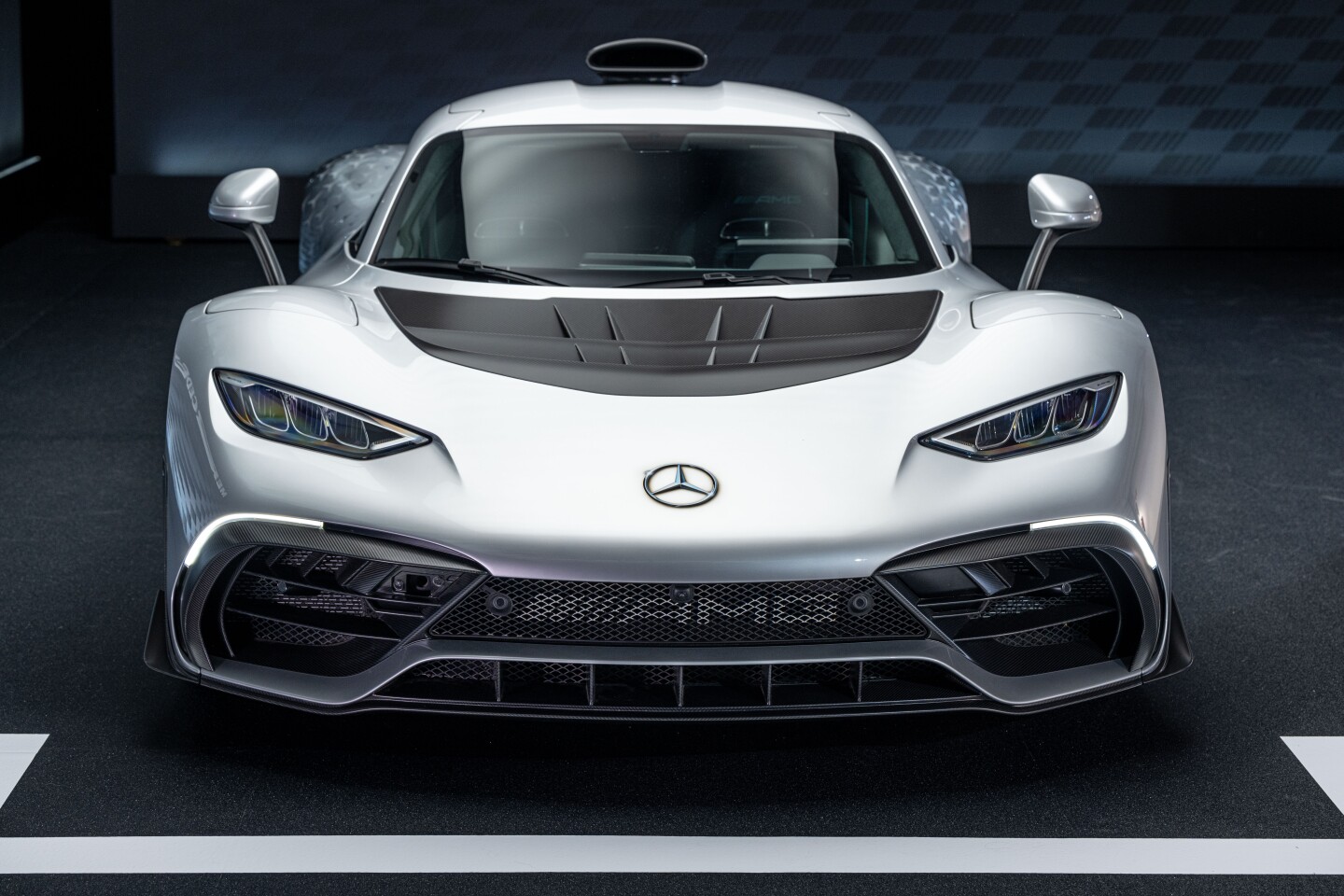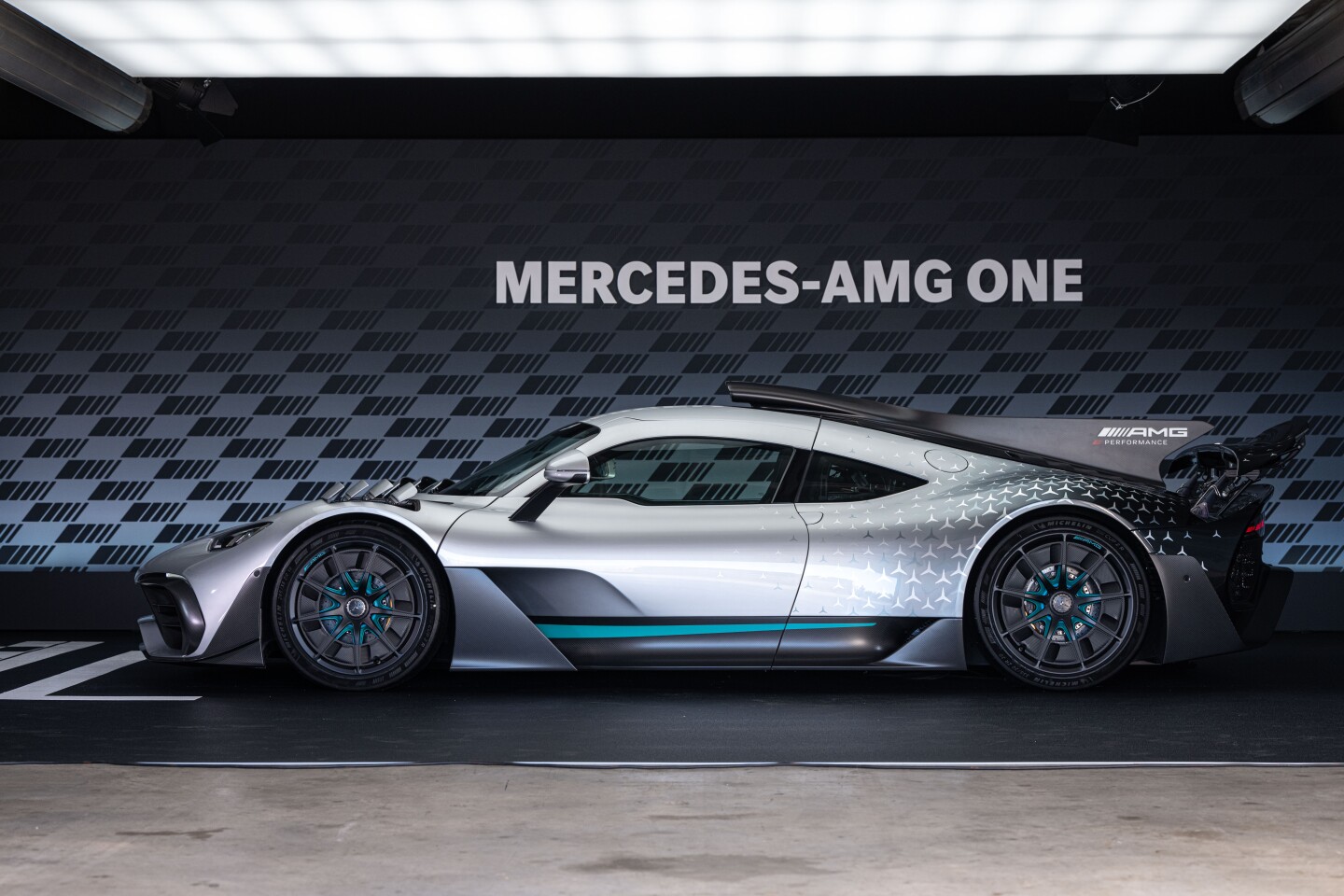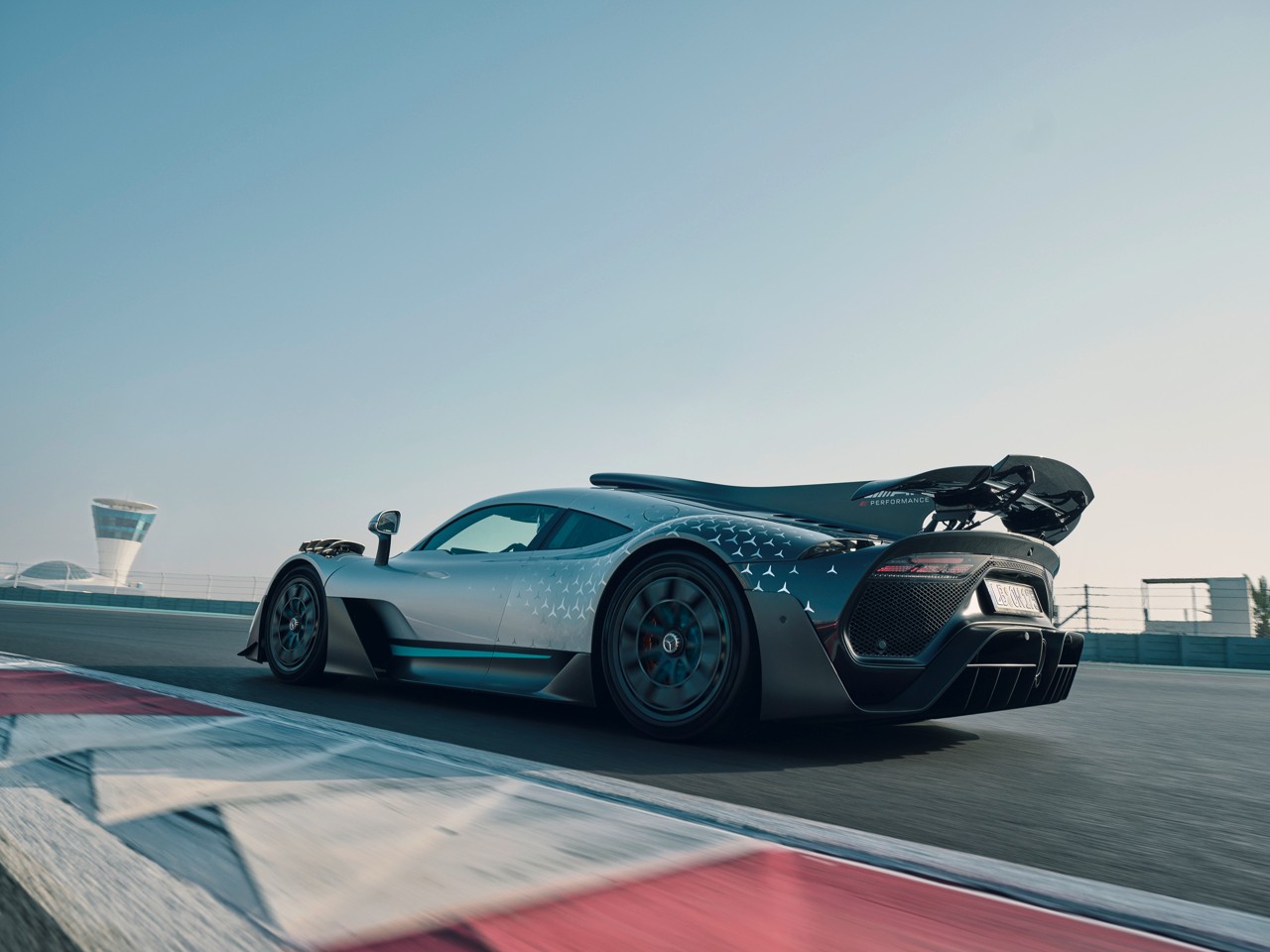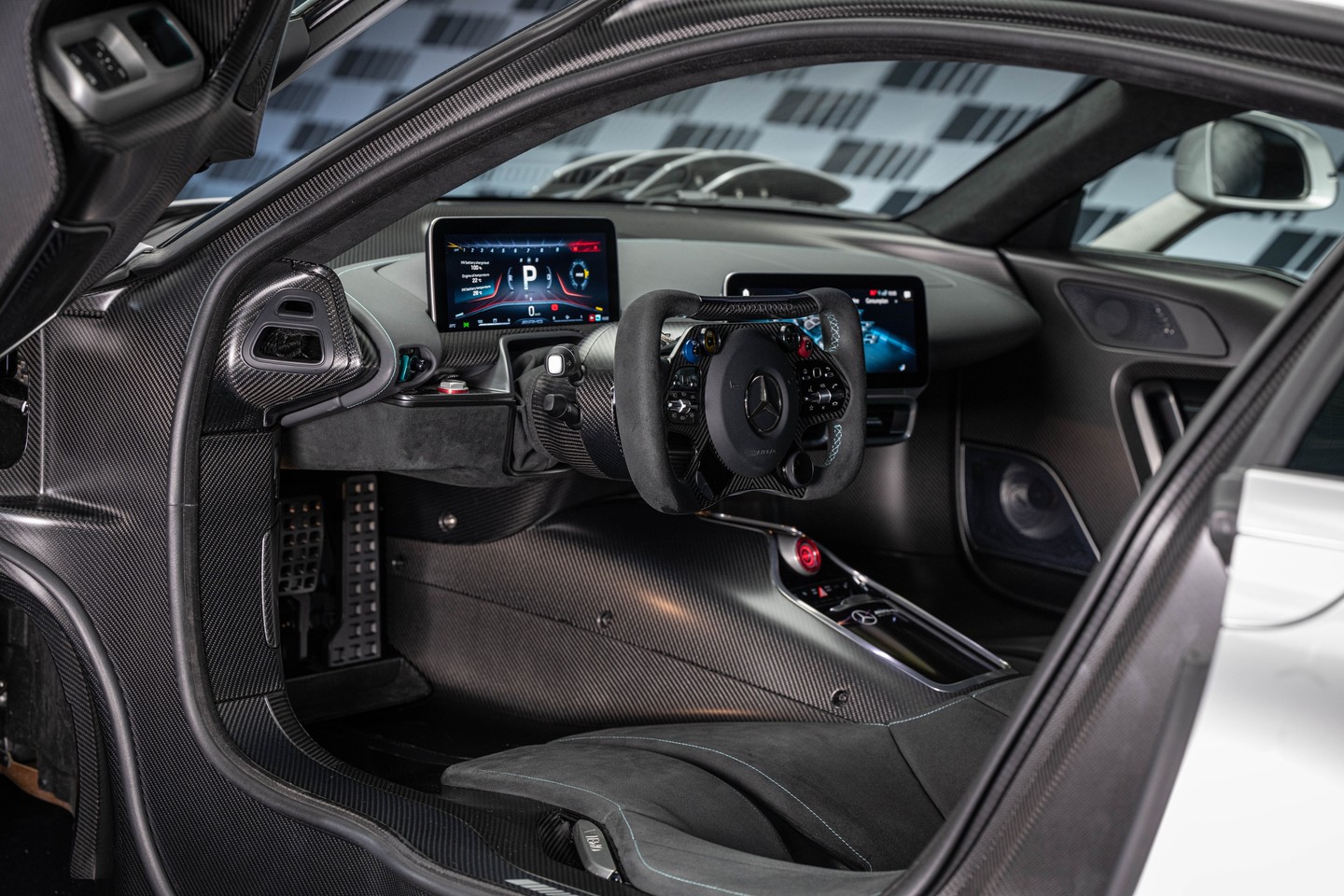Back in 2017, Mercedes-AMG revealed the Project ONE, a hypercar with a Formula 1-inspired hybrid powertrain that generate over 1,000 hp and propel the vehicle to over 350 km/h (217 mph). It’s been five long years but the production version of the super sports car has finally landed, helping to mark the 55th anniversary of the laying of AMG’s foundation stone on June 1, 1967.
Deliveries of the production vehicle were originally slated for mid 2019, but Mercedes-AMG engineers had a hard time making an “F1 car for the road” that was street legal – not only in terms of power, but also in terms of increasingly strict noise and emissions regulations that don’t apply to race cars. There’s a chance COVID also played a part.
Now simply called the Mercedes-AMG ONE, the mid-engine two-seater qualifies for the list of the world’s most powerful production cars. Its 1.6-liter V6 combustion engine and four electric motors combine for a total output of 1,063 hp (782 kW), propelling the car to a top speed limited to 352 km/h (219 mph). Two 120-kW electric motors power the front wheels, a third 120-kW motor is installed directly on the V6 engine with a link to the crankcase, and a 90-kW motor is integrated into the turbocharger.

Mercedes-Benz
The car borrows more than just its E Performance Formula 1 hybrid drive from its motorsport brethren. Its carbon-fiber monocoque and carbon-fiber body, load-bearing engine/transmission unit, active aerodynamics and push-rod suspension all have their roots in high-performance racers.
Mercedes says the technology in the ONE actually goes beyond a Formula 1 car in some respects. For example, while Formula 1 regulations limit vehicles to 2WD, the ONE boasts the AMG Performance 4MATIC+ fully variable all-wheel drive system with hybrid-driven rear axle and electrically driven front axle with torque vectoring. A new, automated 7-speed transmission has been developed especially for the Mercedes-AMG ONE.
The four overhead camshafts of the V6 are driven by spur gears, while pneumatic valve springs have been used in place of mechanical valve springs, to up engine speeds. The engine revs up to 11,000 rpm, having deliberately been kept under the F1 rev limit to increase durability and because buyers need to rely on commercial super plus gasoline.

Mercedes-Benz
The hybrid drive system provides six drive programs, ranging from the self-explanatory EV mode, through Race Safe mode, where the combustion engine is switched on only when extra power is needed, and Race mode, where the engine runs continuously to charge the battery to ensure full electric power is always available. Then there’s the race-track-only Race Plus and Strat 2 modes, with active aerodynamics, firmer suspension tuning, and a 37-mm and 30-mm lowering of the chassis front and rear, respectively. Strat 2 is designed to mirror settings used for F1 qualifying and delivers full power to all motors. An Individual custom setting for personal preference settings rounds out the drive modes.
A cooling system is designed to keep the car’s high-voltage battery at the optimal operating temperature as much as possible, regardless of how often it is charged and discharged. A pump sends coolant flowing past each and every cell in the battery and through an attached heat exchanger to ensure even heat distribution throughout the battery.
Mercedes says the ONE can go from 0-100 km/h (62 mph) in 2.9 seconds, 0-200 km/h (124 mph) in 7 seconds flat, and hit 300 km/h (186 mph) in 15.6 seconds. Impressively, the automaker claims fuel consumption (WFTP test procedure) of 8.7 l/100km (27 mpg).

Mercedes-Benz
The exterior design looks largely unchanged from the Project ONE of five years ago, with a carbon-fibre monocoque and a far forward cockpit. Designers and aerodynamics experts reportedly worked closely to ensure maximum downforce, which kicks in at speeds as low as 50 km/h (31 mph) and increases with speed.
The roofline is dominated by a vertical shark fin that flows from the black air intake derived from Formula 1. The fin is designed to improve cornering stability by preventing cross-flow and/or a breakaway of airflow at the rear.

Mercedes-Benz
The motorsport touches continue inside, with an F1-inspired steering wheel and racing bucket seats with backrests that can be adjusted to a grand total of two positions – 25° and 30°. Thankfully the steering wheel is electrically adjustable and the pedal box is mechanically adjustable. There’s also plenty of exposed carbon fiber, offset by the magma gray nappa leather and black Dynamic microfiber seat pans and black yellow topstitching – although other colors are available.
And for a price starting at €2.8 million (US$3 million), before options, on-road costs and local taxes you’d expect some color options. On top of that, buyers will need to shell out for a ticket to Germany as the ONE is only being sold directly to customers at Mercedes-AMG’s headquarters.
Source: Mercedes-Benz
Source of Article